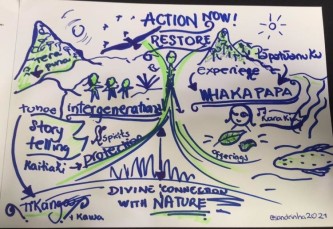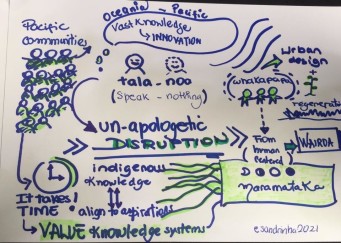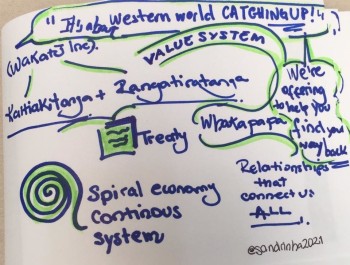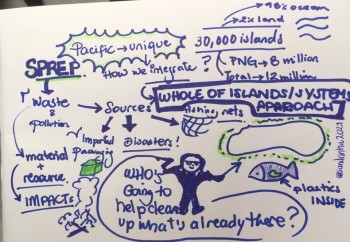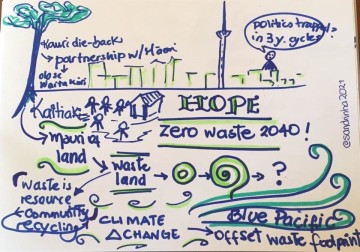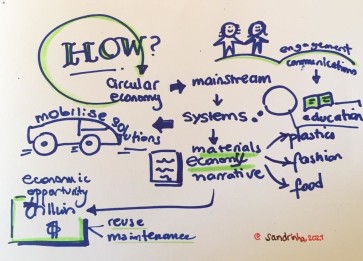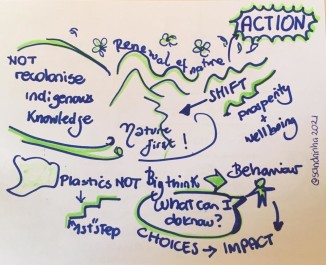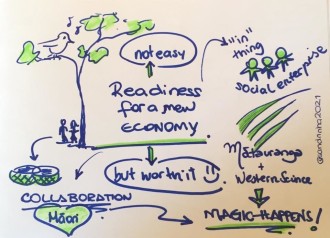The morning started on a high note, with a personal Mātauranga Māori perspective on Circular Economy by Teina Boasa-Dean from Tuhoe. The power of storytelling becomes front and center tool to communicate the connection with nature through whakapapa (genealogy), and the actions towards intergenerational restoration, governed by tikanga (Māori protocol).
Leilani Unasa from The Cause Collective highlighted the importance of talanoa (dialogue), and of aligning with and meeting the aspirations of existing groups. The process takes time but provides enormous value to enrich knowledge systems in urban settings like South Auckland.
Traci Houpapa, Federation of Maori Authorities Chair, remarked that “it is the Western World that needs to catch up”. We should be talking about a spiral economy instead, learning, building up and regenerating.
The Secretariat of the Pacific Regional Environment Programme noted that first we need to clean up all the plastic rubbish already floating around Oceania. It let me thinking, what’s New Zealand’s & Australia’s impact on the Pacific? Anthony Talouli remarked the need for a “whole of islands systems approach” as well.
In the afternoon Councillor Penny Hulse (Auckland Council) reminded us of the importance of hope and a vision such as “Blue Pacific” that goes beyond short sighted political cycles. Lofty goals (e.g. Auckland Zero Waste 2040), are key to keep moving forward.
So how do we put in practice the “circular economy”? The Ellen MacArthur Foundation highlighted that “circular economy” is a trillion dollar opportunity. They address three materials problems: Plastics, fashion and food, through engagement at higher levels such as World Economic Forum, education through universities and with big companies too.
Vicky Robertson, Chief Executive Ministry for the Environment, concluded with a strong call to action for changing behaviour, our choices impact our world. Plastics are not the main problem but only a first step to address environmental issues.
Hemi Rolleston (Scion), provided the best closing I have seen in a while at a conference, bringing in the challenges of a new economy but also the opportunities for the magic of combining Mātauranga Māori and Western Science.
We are ready for a new economy!
*Graphics, photos and text by Sandra J. Velarde (2019). Twitter: @sandrinha2021
Videos from the presentations are available here.
